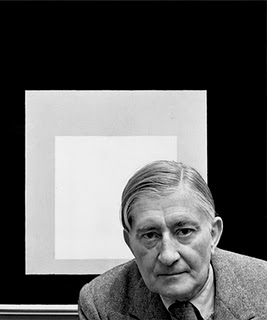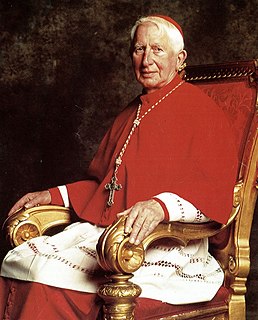A Quote by T. S. Eliot
A wrong attitude towards nature implies, somewhere, a wrong attitude towards God, and that the consequence is an inevitable doom. For a long enough time we have believed in nothing but the values arising in a mechanized, commercialized, urbanized way of life: it would be as well for us to face the permanent conditions upon which God allows us to live upon this planet.
Related Quotes
Religion, as distinguished from modern paganism, implies a life in conformity with nature. It may be observed that the natural life and the supernatural life have a conformity to each other which neither has with the mechanistic life...A wrong attitude towards nature implies, somewhere, a wrong attitude towards God...[We should] struggle to recover the sense of relation to nature and to God.
The truth is that it is our attitude towards children that is right, and our attitude towards grown-up people that is wrong. Our attitude towards our equals in age consists in a servile solemnity, overlying a considerable degree of indifference or disdain. Our attitude towards children consists in a condescending indulgence, overlying an unfathomable respect.
Now, there are two different attitudes towards learning from others. One is the dogmatic attitude of transplanting everything, whether or not it is suited to our conditions. This is no good. The other attitude is to use our heads and learn those things that suit our conditions, that is, to absorb whatever experience is useful to us. That is the attitude we should adopt.
Laughter. Yes, laughter is the Zen attitude towards death and towards life too, because life and death are not separate. Whatsoever is your attitude towards life will be your attitude towards death, because death comes as the ultimate flowering of life. Life exists for death. Life exists through death. Without death there will be no life at all. Death is not the end but the culmination, the crescendo. Death is not the enemy it is the friend. It makes life possible.
The universe shows us the life of God, or rather it is in itself the life of God. We behold in it his permanent action, the scene upon which his power is exercised, and in which all his attributes are reflected. God is not out of the universe any more than the universe is out of God. God is the principle, the universe is the consequence, but a necessary consequence, without which the principle would be inert, unfruitful, impossible to conceive.
Why God should want and need us is a mystery. But it is true: otherwise he would not have created us and life would ultimately have no meaning for us. It is good to remember that in God the is a constancy, a consistency of attitude which never changes, irrespective of what we are or how we act: he never changes in is wanting us or needing us.
[St. Francis] looked upon creation with the eyes of one who could recognize in it the marvelous work of the hand of God. His solicitous care, not only towards men, but also towards animals is a faithful echo of the love with which God in the beginning pronounced his 'fiat' which brought them into existence. We too are called to a similar attitude.
Knowledge, in so far as it is directed to practical matters, has only to enumerate the principal possible attitudes of the thing towards us, as well as our best possible attitude towards it. Therein lies the ordinary function of ready-made concepts, those stations with which we mark out the path of becoming. But to seek to penetrate with them into the inmost nature of things, is to apply to the mobility of the real a method created in order to give stationary points of observation on it.




































